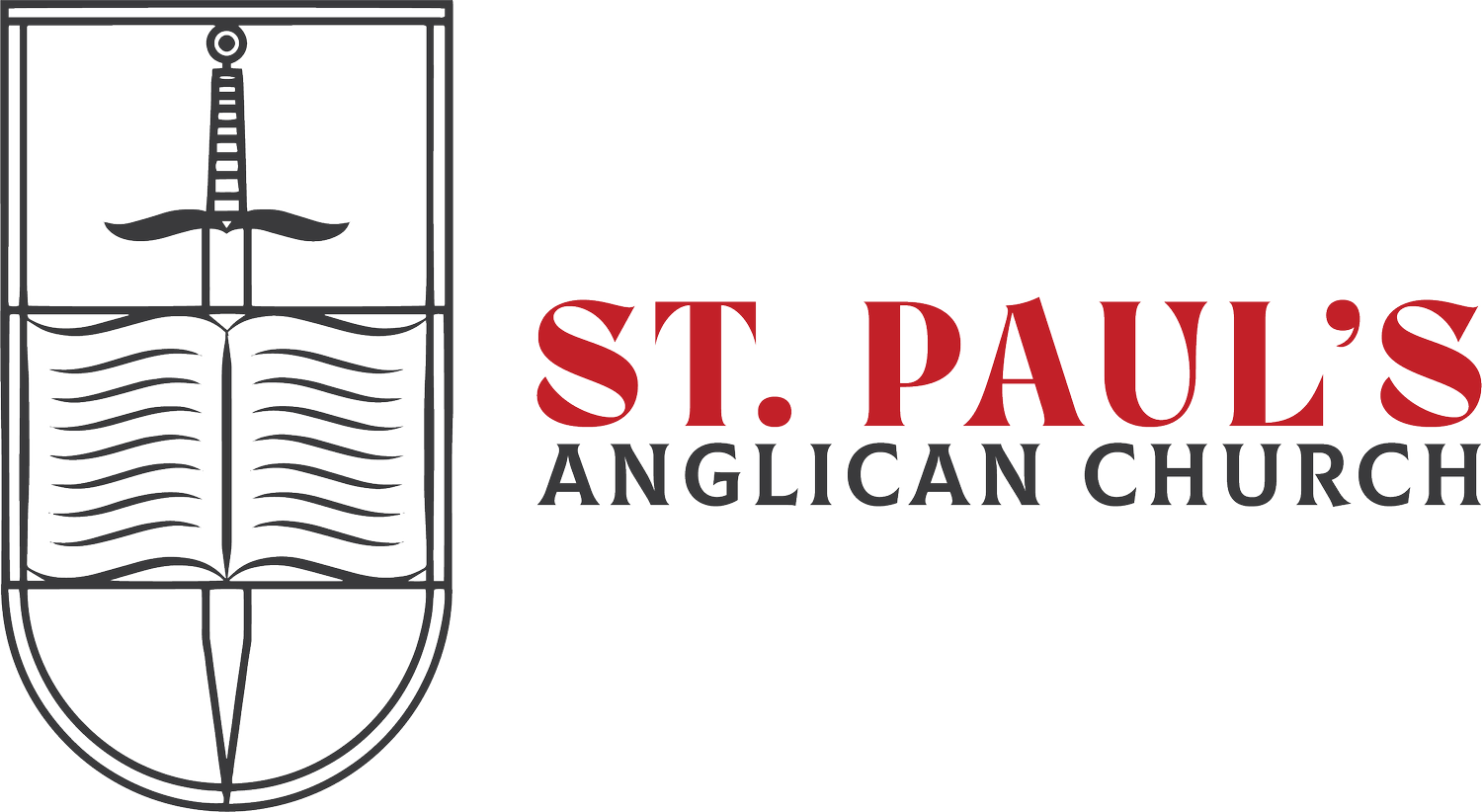Holy Communion at St. Paul’s
For Anglicans, Holy Communion is the center of our life together. The Eucharist is what keeps St. Paul’s running by making the sacrifice of our Lord and Savior Jesus Christ on the Cross present to us and so we approach it with the utmost reverence.
Our Beliefs about holy commuion
Holy Communion is one of seven Sacraments. Sacraments are outward, visible signs of inward, spiritual grace.
The outward, visible sign of Holy Communion is bread and wine; the inward, spiritual grace is the Body, Blood, Soul, and Divinity of Our Lord and Savior Jesus Christ.
Holy Communion is “a perpetual memory of that his precious death and sacrifice” (BCP 80) in that it makes the sacrifice Christ made on Calvary present to his Church (“that we…in remembrance of his death and passion, may be partakers of his most blessed Body and Blood”; BCP 81).
In response to the great gift that our Lord gives us, Holy Communion is an opportunity for us to unite ourselves to his sacrifice by “presenting our selves, our souls and bodies” so that each one of us can be transformed into “a reasonable, holy and living sacrifice” to God (Rom 12:1; BCP 81).
Holy Communion also unites us to each other and the whole of Christ’s Church by assuring us “that we are very members incorporate in the mystical body of thy Son, which is the blessed company of all faithful people” (BCP 83).
Our Policy on Holy Communion
Can I Receive Communion?
All baptized Christians are invited to share with us in the Holy Communion.
When in doubt, ask Fr. Wesley or Fr. David!
Those who do not wish to receive Communion are warmly invited to come forward and kneel at the altar rail for a blessing, indicated by folding both your arms across your chest.
Those with babies and small children are welcome and encouraged to bring them forward so the little ones can receive a blessing.
How Should I Prepare to receive communion?
It is a good custom to fast before receiving the Eucharist. If you are coming to church on a Sunday morning, it is laudable to not eat beforehand if you are in good enough health to fast. In general, it is a good practice to fast an hour or two before receiving.
St. Paul warns us that we should not receive Communion in an unworthy manner (I Cor 11:27). It is important to come to Communion only after engaging in self-reflection and examination of conscience. If you find yourself in a state of serious sin, it is a good idea to come to Reconciliation before receiving Holy Communion.
How Should I receive Communion?
Receiving the Host: You may receive the Host directly on your tongue or you can put your hands out (right hand on top of left) and the Host will placed in your hand so you can consume it.
Drinking from the Chalice:
You may drink from the Chalice during communion. You may reverently touch the base of the Chalice as you drink.
If you wish to receive by intinction, please do not try to dip the Host in to the Chalice yourself. If you leave it on the palm of your hand, the Chalice Bearer will dip it and place it directly on your tongue.
If, for any reason, you cannot receive from the Chalice, please put one arm across your chest and the Chalice Bearer will skip over you.
When can I receive holy communion at st. Paul’s?
We offer Holy Communion every Sunday at 8a and 11a.
Holy Communion is offered at 9:30a on the fourth Sunday of every month.
We celebrate Holy Communion every day. Mondays, Tuesdays, Thursdays, and Saturdays at 9a, Wednesdays at 7:30a, and Fridays at 11:30a.

